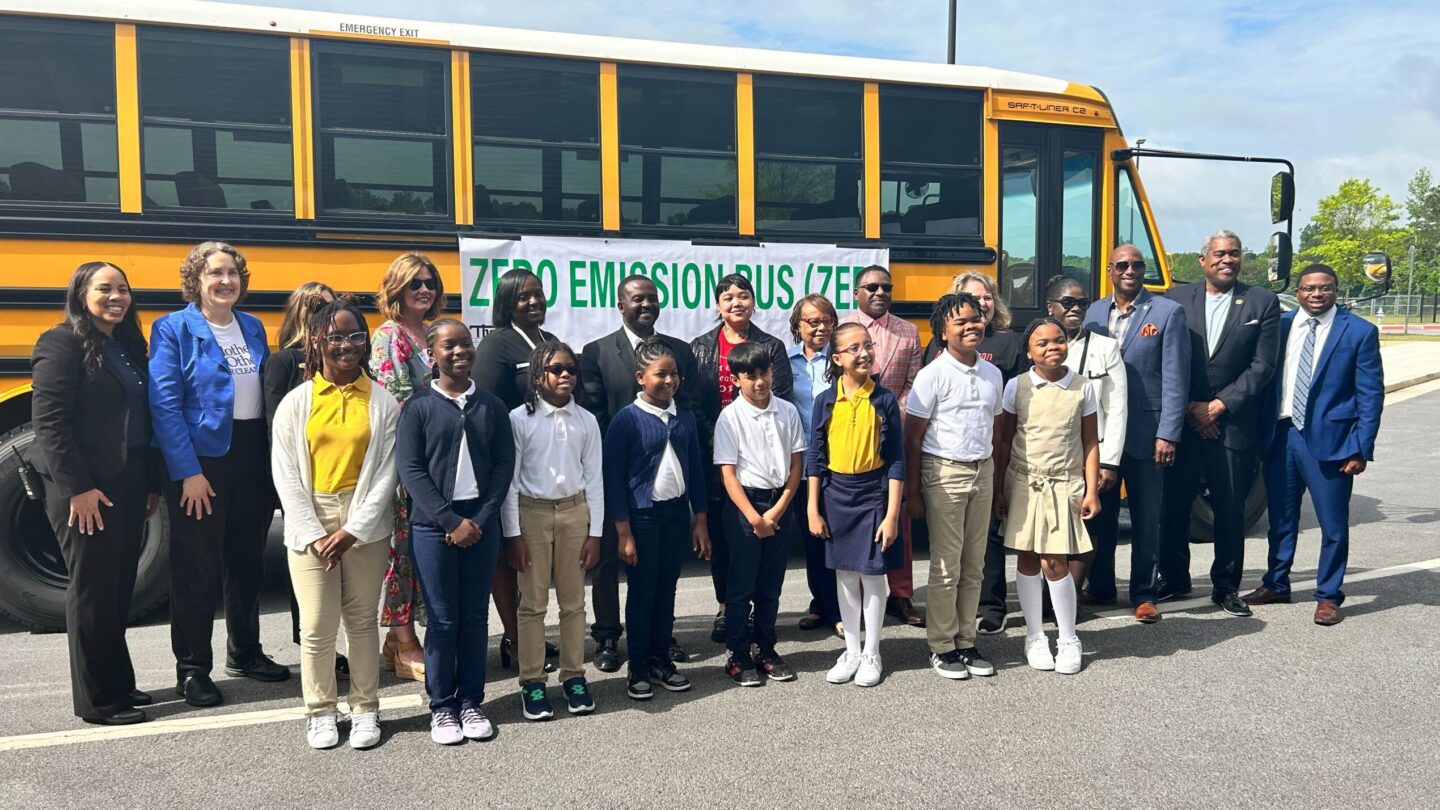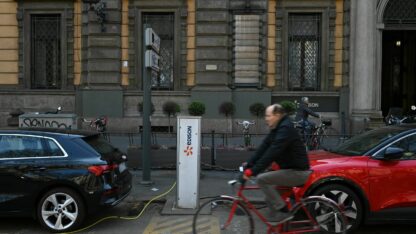School buses in Metro Atlanta are getting cleaner with a new fleet of low-emissions buses on the way to several school districts in the area.
Clayton County will receive almost $10 million from the U.S. Environmental Protection Agency. The money will go toward buying 25 electric school buses and 25 charging units.
It’s part of the EPA’s Clean School Bus Program, in which $5 billion will be distributed for school districts to buy low and zero-emission buses; the federal bipartisan infrastructure law will fund the money. In addition to Clayton, 14 other Georgia school districts will benefit from the program as well.
Daniel Blackman, EPA administrator for the southeast, says the cleaner buses will protect children’s health, especially in underserved communities — like those around Michelle Obama Elementary Academy, where he made the funding announcement.
“We’re at a school where 98% of these kids at this school are living at or below the poverty line,” he said. “As much as we would like to do within our scope of work, it allows us to at least provide school buses that protect our most vulnerable communities.”








